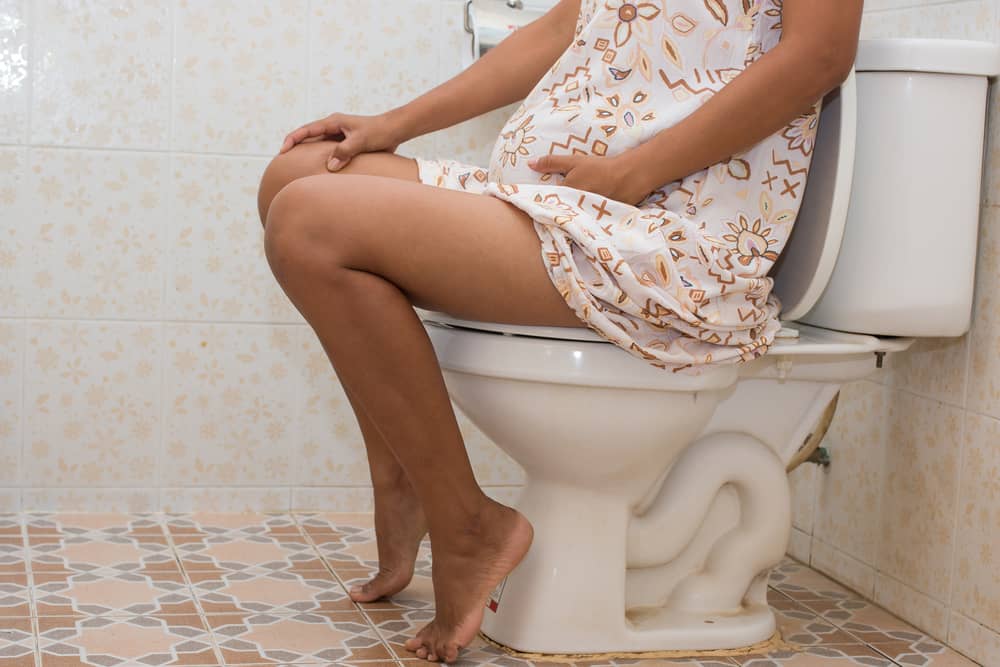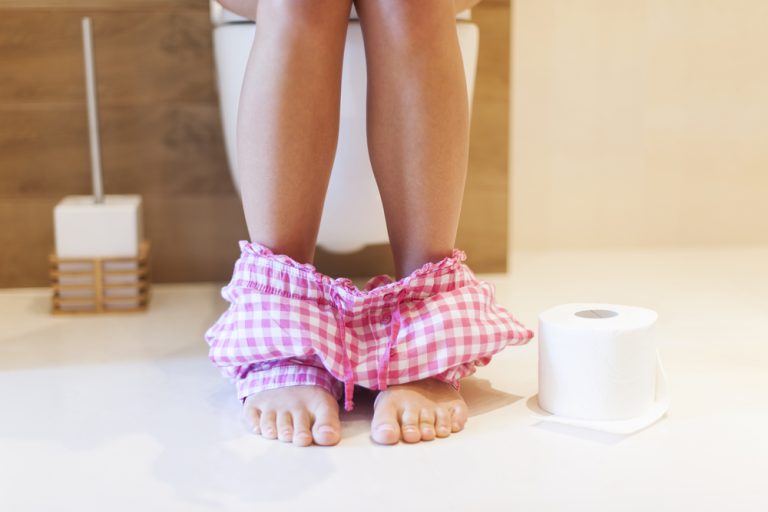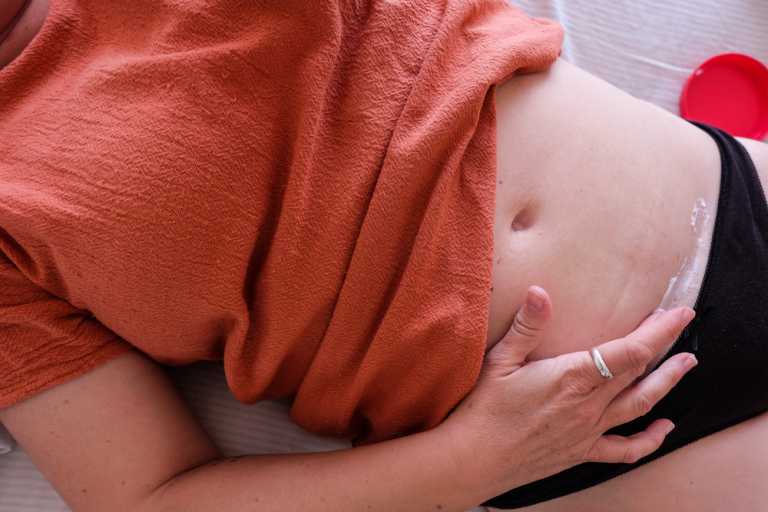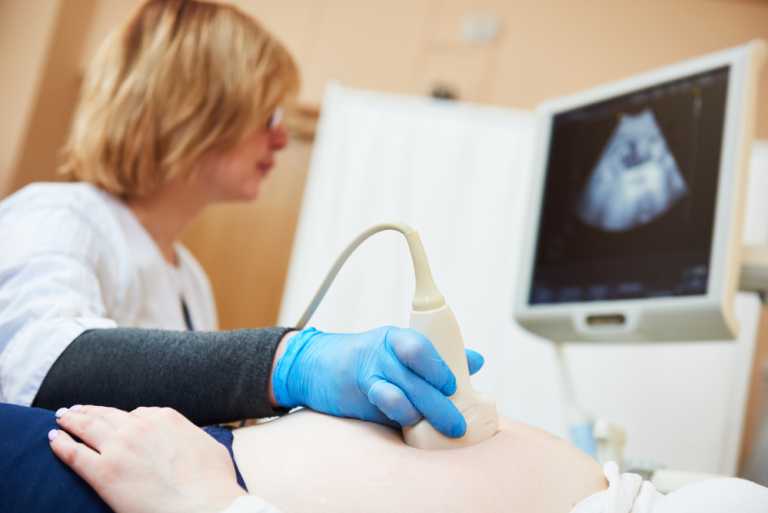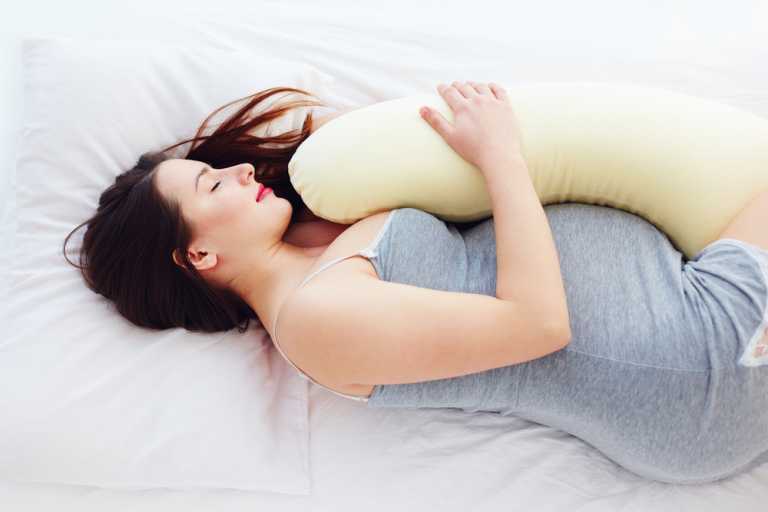One of the most common old wives’ tales is that diarrhea or loose bowels are a sign that birth is imminent. But is it true? Or just a way to cheer up women who are very pregnant and now suffering from diarrhea as well?
Here’s everything you need to know about your loose bowels, how soon you might go into labor, and how to make yourself feel better until you do.
Do Loose Stools Mean Labor Is Near?
Loose stools, or even diarrhea, are a symptom of early labor. So, if you find yourself running to the bathroom, you could be just 24–48 hours away from meeting your baby.
But don’t throw your hospital bag in the car just yet. While many women do experience what’s known as “pre-labor diarrhea,” it’s not a sure sign that labor is imminent. Your loose bowels may also be caused by a stomach bug, greasy food, or late pregnancy hormonal changes. So, unfortunately, you could still be weeks away.
Your doctor will only want to see you on the delivery ward once you have one of these top 3 symptoms:
- Regular contractions at 3-minute intervals.
- Your waters breaking.
- Losing your mucus plug, also known as a bloody show.
What Causes Pre-Labor Diarrhea?
Old wives’ tales will tell you that loose bowels pre-labor are your body’s way of having a clear-out before delivery. While this is one of the bright sides of suffering through your stomach problems, it’s not entirely true.
Your troublesome bowels are actually a side effect of the surge of prostaglandins you’ll need to stimulate labor. These are hormone-like substances produced in your uterus that trigger contractions and soften your cervix.
Unfortunately, they can also stimulate contractions in your intestine and cause loose poop.
Does Everyone Have Loose Stools Before Labor?
Not everyone will experience loose stools before they deliver. For example, this study found that only around 4% of women had gastrointestinal symptoms in the run-up to their delivery.
You are more likely to experience stomach problems if you suffer from diarrhea during your period. This is because the prostaglandins released before you give birth are the same as those that cause menstrual cramps.
What to Do if You Have Loose Stools Before Labor
Having stomach issues isn’t pleasant, but there are some things to do to make it easier:
Stay Hydrated
Diarrhea can cause dehydration which is something you really want to avoid. If you are about to give birth, it will make you feel ill during the delivery, and if you’re not ready, it can cause contractions and false labor.
To avoid this, keep drinking water, and consider trying an electrolyte solution.
Eat Little and Often
Stick to bland, easily digestible foods, and don’t eat too much in one go. Toast, crackers, bananas, and chicken broth are all excellent choices to keep your energy levels up and settle your stomach.
Rest
As food moves through your intestinal tract faster than usual, you won’t absorb as much energy. This can leave you tired and lethargic. If so, the best thing you can do is rest, nap, and try to relax.
What to Avoid if You Have Diarrhea While Pregnant
Unfortunately, there’s nothing you can do to stop your unwanted bowel movements, but you can avoid making things worse. Here are the most important things to stay away from if you have an upset stomach in late pregnancy:
Spicy, Fatty, Greasy, or Acidic Foods
These foods will make your symptoms worse and could trigger nausea.
Anti Diarrhea Medication
Contact your doctor before taking any anti-diarrhea medication. Many brands aren’t suitable for use during pregnancy and may be ineffective anyway.
Sitting on the Toilet for Long Periods or Straining Too Hard
While pregnant, you’re at increased risk of developing hemorrhoids. These are painful, itchy, and swollen veins around your anus caused by straining or spending too much time on the toilet.
When to Call a Doctor
Generally, experiencing loose stools before delivery is harmless. However, you should contact your doctor or healthcare provider if:
- You’ve had diarrhea for more than 2 days.
- You also have a fever or are vomiting.
- You feel very dehydrated.
- Your urine is dark, and you’re urinating less often than usual.
FAQs
Can Contractions Cause Loose Stools?
Contractions don’t cause loose stools, but they are related and often appear at the same time. This is because both symptoms are caused by prostaglandins, which stimulate the contraction of both your uterus and intestines.
How Long Does Pre-Labor Diarrhea Last?
You may have just a few loose bowel movements lasting a couple of hours, or you may have the runs for up to 2 days. It largely depends on your diet and how sensitive you are to prostaglandins.
Contact your doctor if your stomach is upset for more than 48 hours. They may want to check you for signs of dehydration.
Can Diarrhea Make You Go Into Labor?
Diarrhea can’t start labor. However, being dehydrated can trigger contractions or false labor. So, if you have loose bowels, keep drinking water. You don’t want to go through contractions twice!
Does Diarrhea at 37 Weeks Pregnant Mean Labor Is Near?
While going into labor at 37 weeks is possible, it’s also a key time to be hit with late pregnancy diarrhea. This is due to hormonal changes leading up to the birth, and you may suffer from looser bowels for the next few weeks.
Do Loose Stools at 39 Weeks Mean You’re About to Give Birth?
At 39 weeks pregnant, loose bowel movements could be one of the first signs of early labor. However, don’t get too excited until you start checking other symptoms off the list. You may still have a week or more to wait.
What Are the Other Symptoms of Early Labor?
While loose bowel movements alone aren’t a good indication that the birth is imminent, they are more reliable when accompanied by other symptoms like:
- Regular contractions
- Losing your mucus plug (bloody show)
- Rupture of your membranes (water breaking)
- Nausea
- Backache
- Lightning crotch
- Your bump dropping
- Pelvic pressure
- Increased discharge
- Unsteady joints
- Fatigue
- Anxiety
